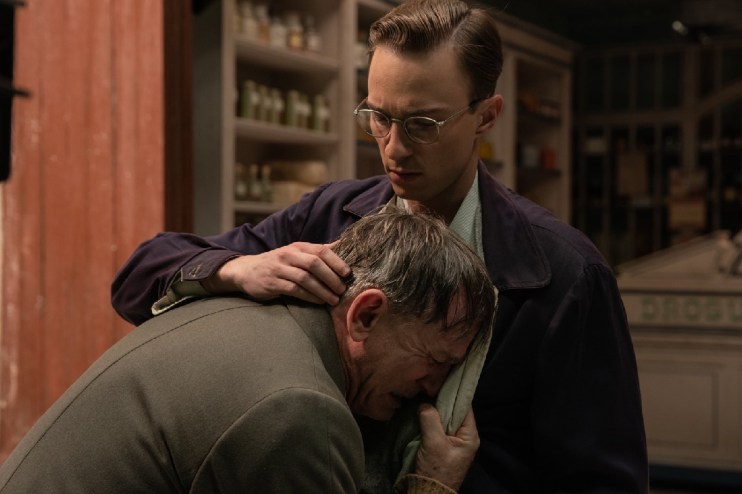| Updated:

One of the headline acts of this year’s London Film Festival, Queer offers a side to Daniel Craig that you will definitely not have seen before. Adapted from the novella by William S. Burroughs, he plays Lee, an American ex-pat living in 1950s Mexico City, having fled New Orleans due to his drug addiction.
Content with his simple life of narcotics and cruising the city’s gay bars for company, his world is thrown into disarray by the arrival of army veteran Gene (Drew Starkey). The pair begin an affair and travel to South America in search of the ultimate high. All the while, Lee wonders what his new companion’s intentions really are.
The film’s title may suggest that it is just sexuality being examined, perhaps a spiritual successor to Luca Guadagnino’s 2017 triumph Call Me By Your Name. However, the filmmaker is interested in a lot more than what his characters do in bed. Lee’s journey is one of addiction, obsession, and a yearning for connection. The audience enters a world of misfits, where Lee enjoys the relative freedom to be who he is, only to be blindsided by something that might resemble love. It’s most captivating when following Craig through this itinerant existence, framed with gorgeous cinematography and excellent music. Lee and Gene’s first meeting is gloriously accompanied by Nirvana’s Come As You Are, ignoring period music in favour of a tune that exemplifies the rawness of their connection.
The film is also, at times, utterly bonkers. While there are moments of tender humanity, as men congregate in bars quietly sharing their latest exploits, there are also many dream sequences and hallucinations which range from profound to bizarre. The first few can catch you off guard, and undoubtedly mean the film wanders at times. However, if you agree to take the ride, there’s a lot of beauty to be found, as Guadagnino accesses the beautiful craziness that made films like Suspiria and Bones And All cult hits. The sight of Craig morphing in and out of his co-star during an ayahuasca trip may not be for the faint hearted, but there’s a point to every peculiarity.
Nothing in the film quite matches the central performance. Some sensationalist headlines made a lot of the former Bond filming gay sex scenes, but the passionate bedroom moments are the least complex parts of what Craig brings to the story. He revels in the opportunity to play a man crumbling beneath an assured surface, showing his vulnerabilities as he chases that which seems most out of reach. This is more in line with the types of intense character work Craig was known for prior to 007, and may be the best performance of his career. By contrast, Starkey can feel elusive, with Gene’s quiet nature meaning he fades in the presence of Craig’s torrent of emotion. There are some fine supporting performances from Jason Schwartzmann as a fellow ex-pat who has bad luck with men; while Leslie Manville makes a short but memorable appearance as an ayahuasca hook-up who might have been in the jungle for too long.
If Queer were a simpler film, it may have been more successful come awards season. However, it would have been nowhere near as unique, and while the risks taken won’t be for everybody, it’s a heartening confirmation that there is a lot more to come from the next act of Craig’s career.